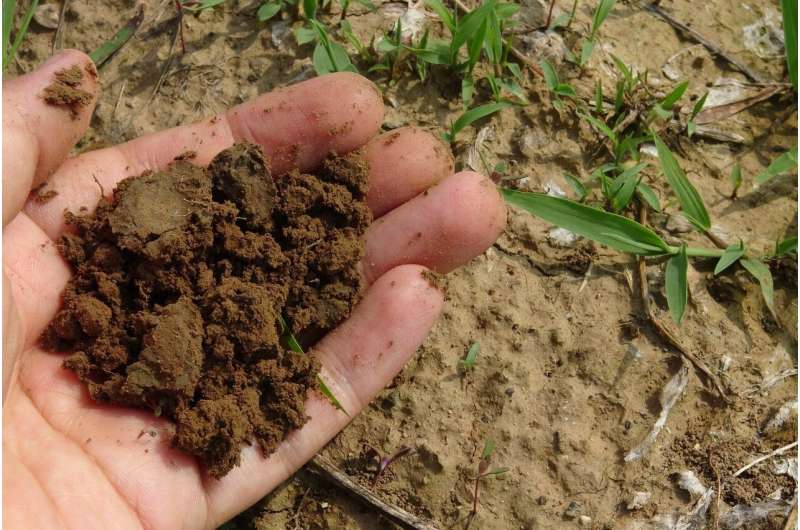Soil bacteria as biocatalysts for producing pharmaceutical ingredients

Researchers from Bochum and Leipzig have successfully used a soil bacterium to specifically produce prodrugs. The key to this step was a detailed understanding of the metabolization of indole. The natural compound is first activated in microorganisms. To do this, they need a monooxygenase, the molecular structure of which has been clarified for the first time.
The findings open up possibilities for the biocatalysis of various active pharmaceutical ingredients. The two teams led by Professor Dirk Tischler from Ruhr University Bochum and Professor Norbert Sträter from Leipzig University have reported their findings in the journal Angewandte Chemie International Edition on February 10, 2023.
Smelling indole in rapeseed fields
Indole is a naturally occurring compound, the typical odor of which is known to many people from rapeseed fields. Various microorganisms metabolize this compound, but it must first be activated, which takes place with the help of what is known as indole monooxygenase. The enzyme can bind to molecular atmospheric oxygen with the involvement of a cofactor and can be used for the selective epoxidation of indole. This creates a highly reactive epoxide, which can then be introduced into the metabolism.
“What makes this class of monooxygenases special is that it has not been possible so far to unravel their molecular structure in combination with substrate and cofactor,” says Dirk Tischler. “We have now finally managed it.”
This opens up the possibility of using these monooxygenases for a more sustainable biocatalysis of active pharmaceutical ingredients, as indole monooxygenases and styrene monooxygenases form a subgroup of what are known as flavoprotein monooxygenases, which can oxygenate double bonds or sulfur atoms in a highly selective manner. Researchers refer to this as epoxidation and sulfoxidation. Depending on the substrate, both enzyme types can also catalyze what are known as chiral reactions, during which only the desired product is created without any unwanted byproducts.
“This is particularly essential during the manufacture of active pharmaceutical ingredients, as molecules and their unwanted twins can have very different effects,” explains Dirk Tischler. As no byproducts are created and the reactions take place under mild conditions, biocatalysis is considered particularly sustainable.
Genetic change produces efficient biocatalyst
The researchers were also able to transfer the insights into the epoxidation of indole to other compounds, including indene. The latter is structurally very similar to indole. “If you can selectively epoxidate indene, you open up the path to producing an active ingredient against HIV protease,” says Tischler. “However, up to now, we have lacked the structural and mechanistical details to get an indole monooxygenase to effectively catalyze this reaction.”
In the current work, the research team managed to unravel the structure of the epoxidase subunit IndA1 from the soil bacterium Variovorax paradoxus EPS and dramatically increase the efficiency of epoxidation with specific genetic changes. The wild-type protein only produced 35% pure indene oxide, whereas the mutant generates more than 99% purity. The 1S,2R-indene oxide produced in this way can be used as a precursor for a HIV protease inhibitor.
“This shows the importance of the molecular understanding of protein structures for biocatalysis and also the possibilities of directed evolution for applied research,” says Dirk Tischler.
More information:
Julia Kratky et al, Structural and Mechanistical Studies on Substrate and Stereo Selectivity of the Indole Monooxygenase VpIndA1: New Avenues for Biocatalytic Epoxidations and Sulfoxidations, Angewandte Chemie International Edition (2023). DOI: 10.1002/anie.202300657
Citation:
Soil bacteria as biocatalysts for producing pharmaceutical ingredients (2023, March 7)
retrieved 7 March 2023
from https://phys.org/news/2023-03-soil-bacteria-biocatalysts-pharmaceutical-ingredients.html
This document is subject to copyright. Apart from any fair dealing for the purpose of private study or research, no
part may be reproduced without the written permission. The content is provided for information purposes only.
For all the latest Science News Click Here
For the latest news and updates, follow us on Google News.

